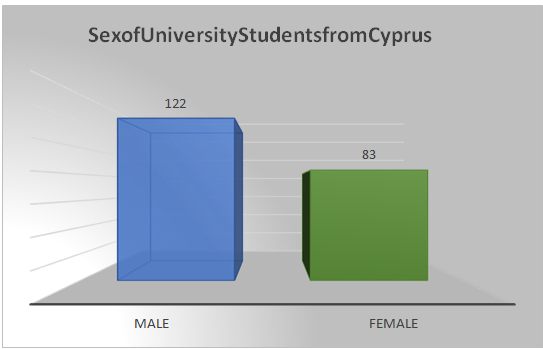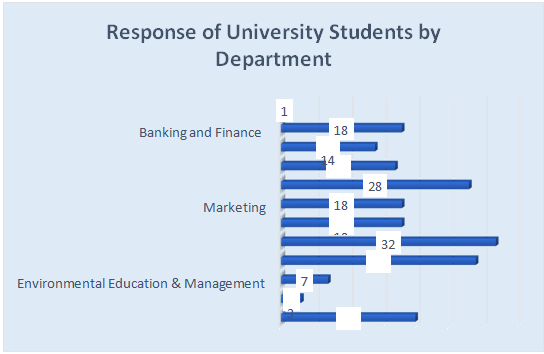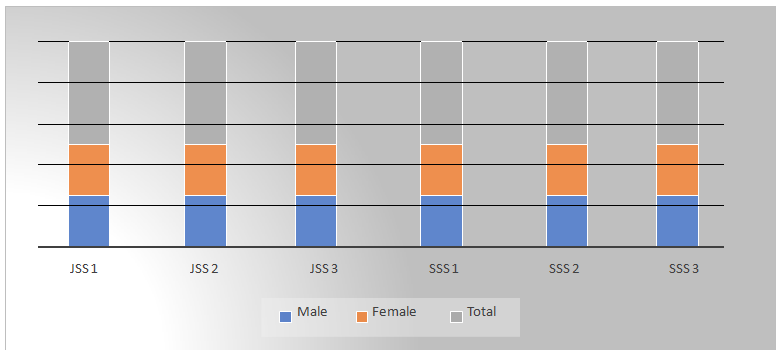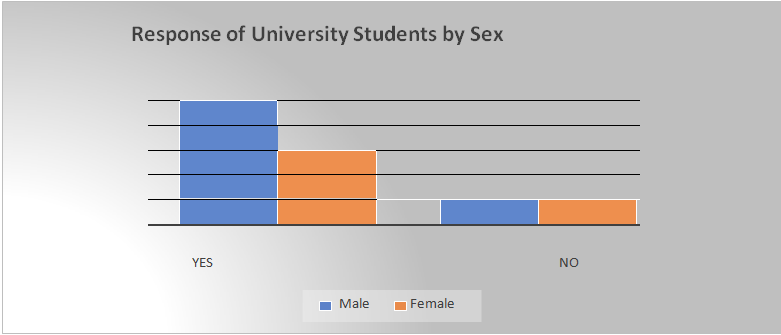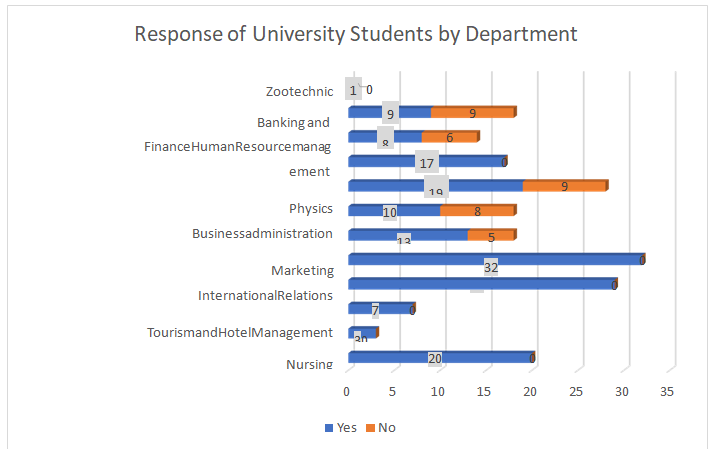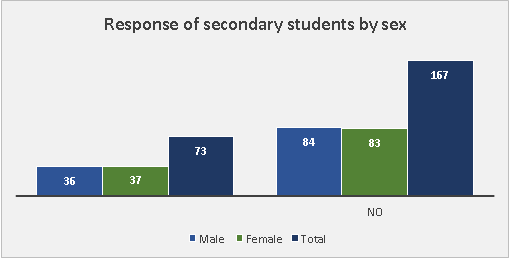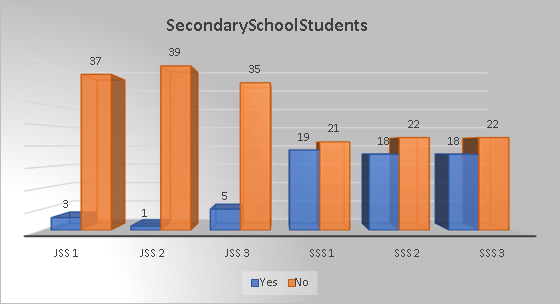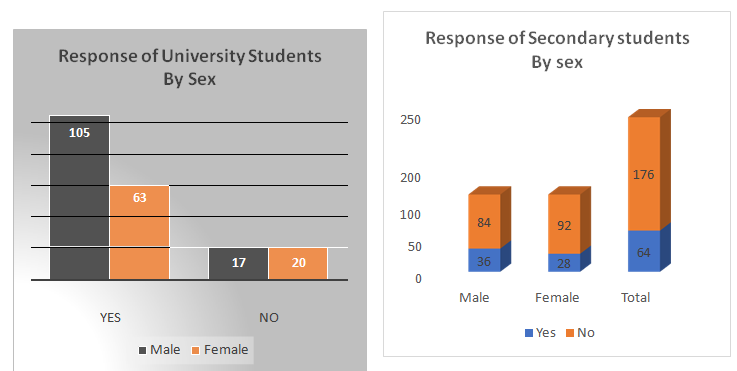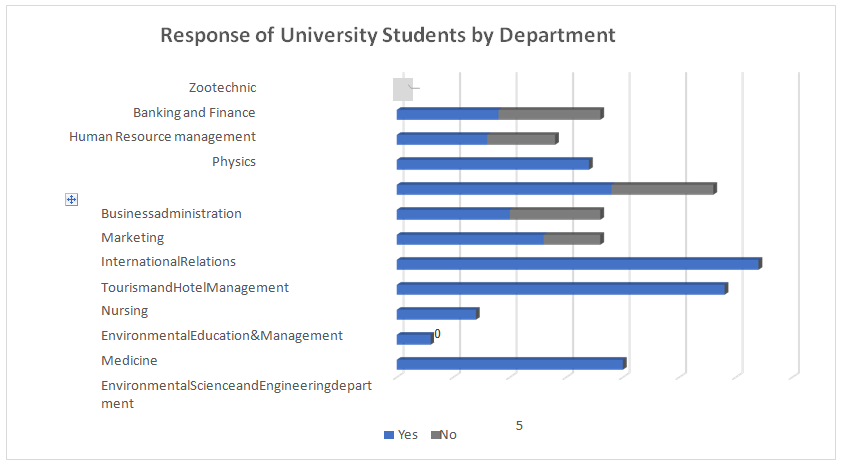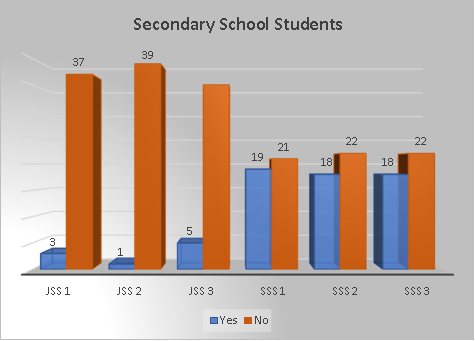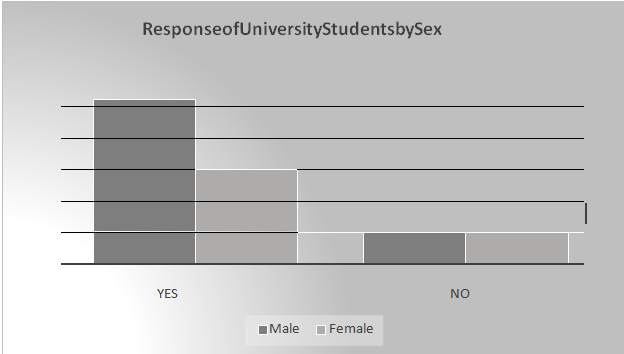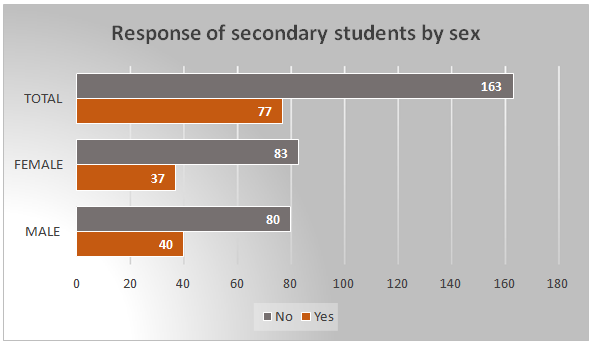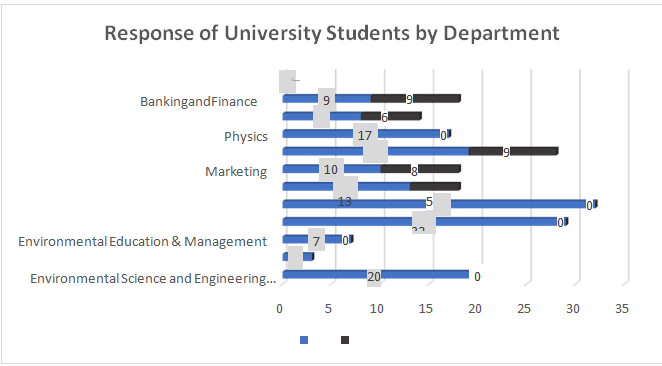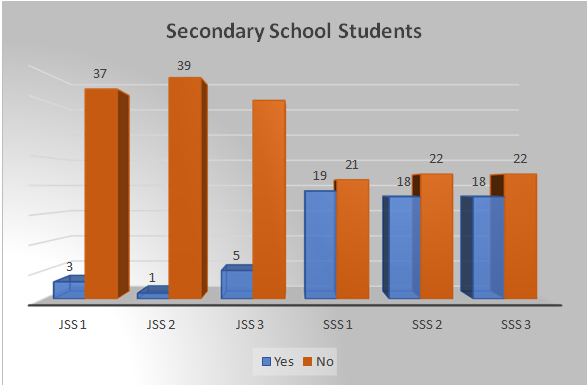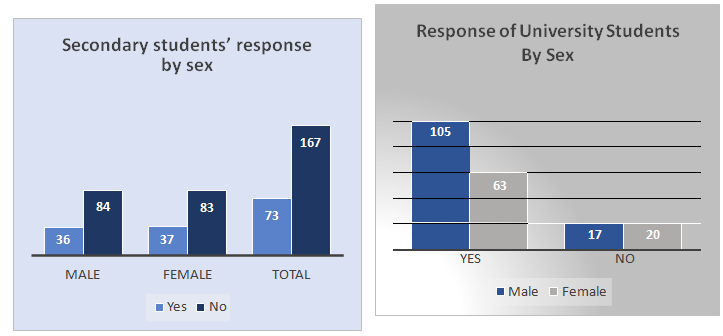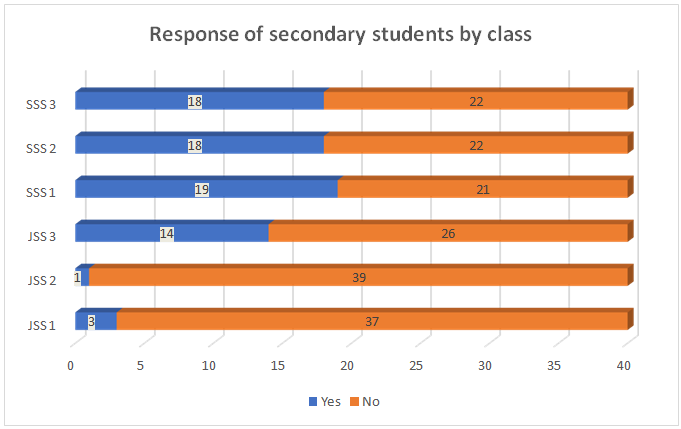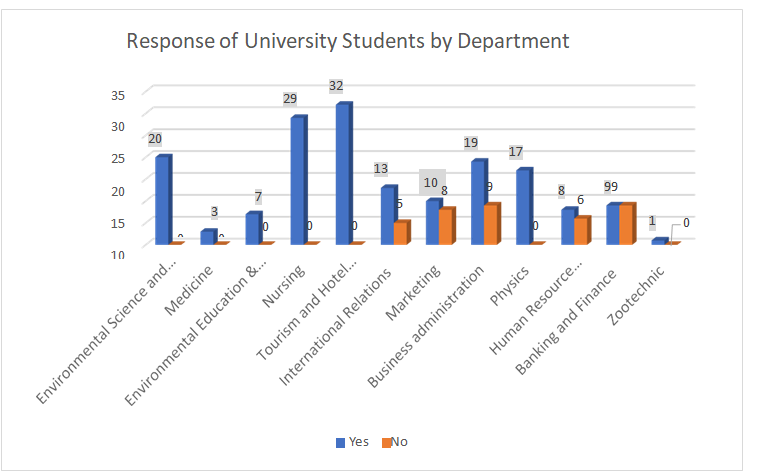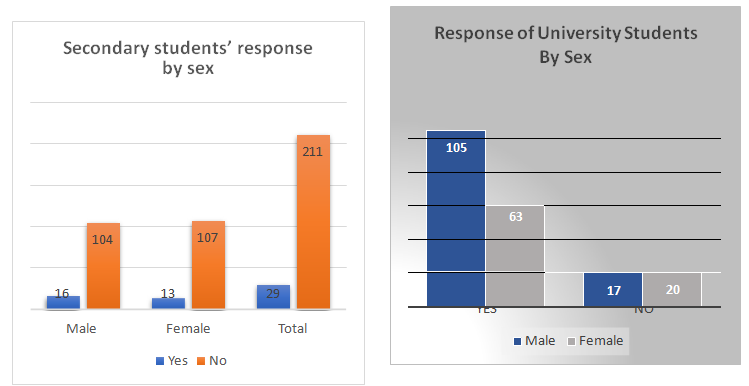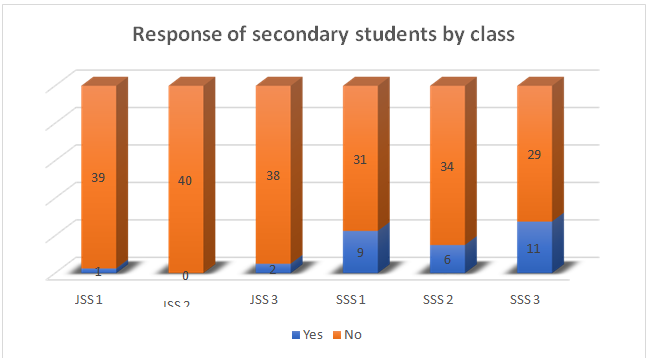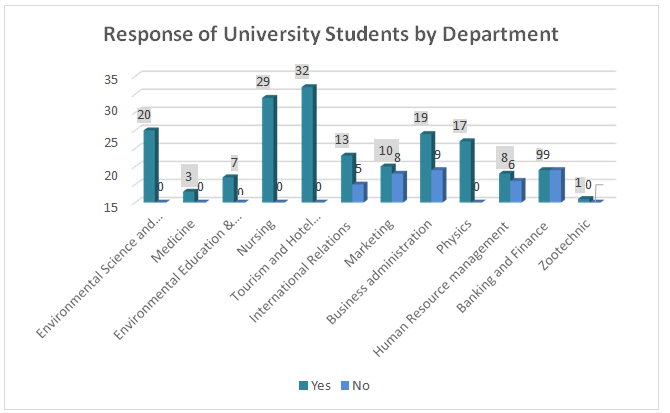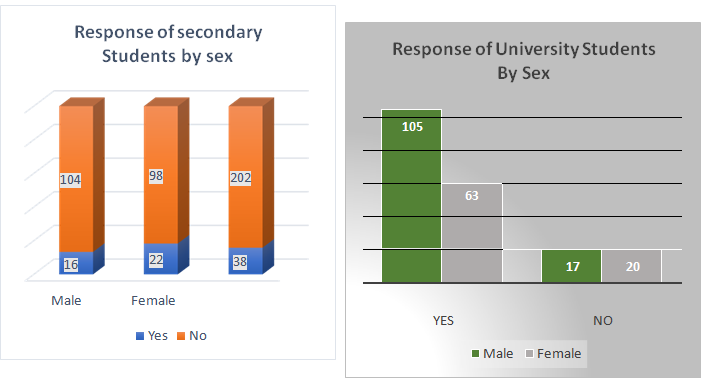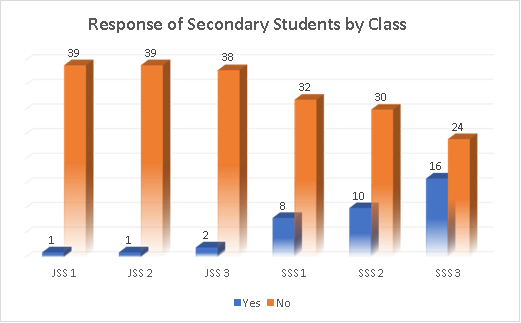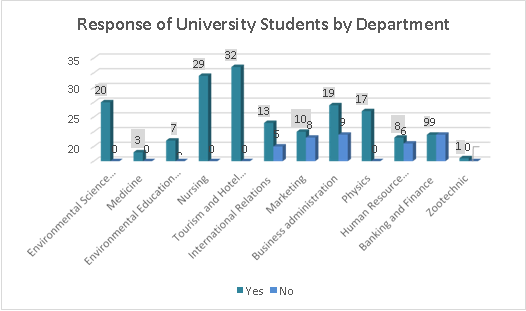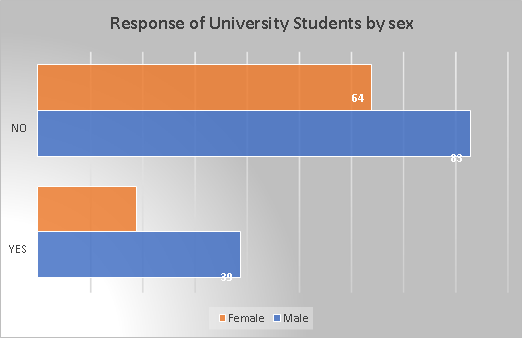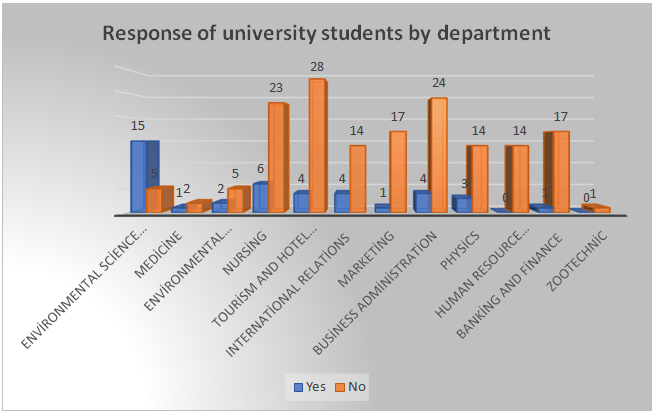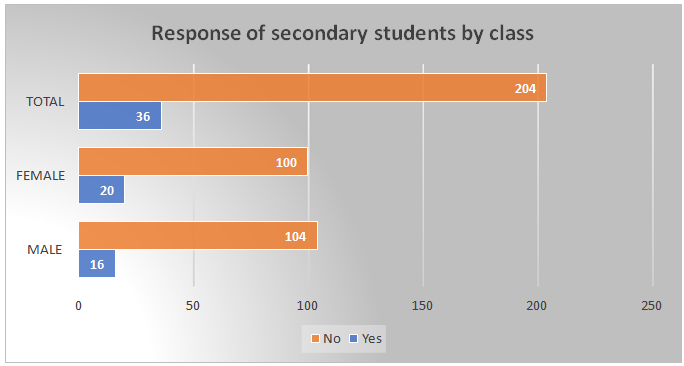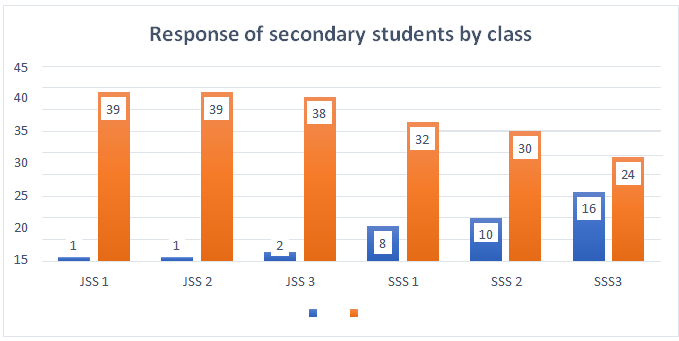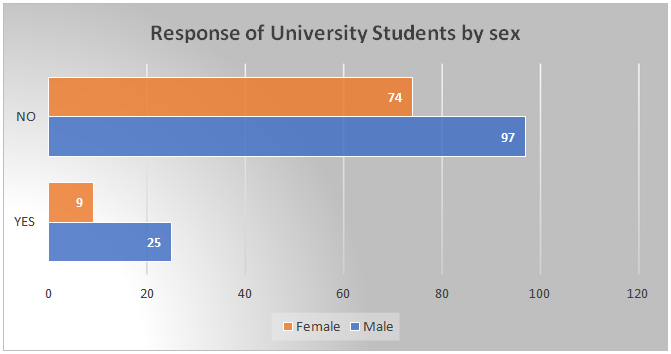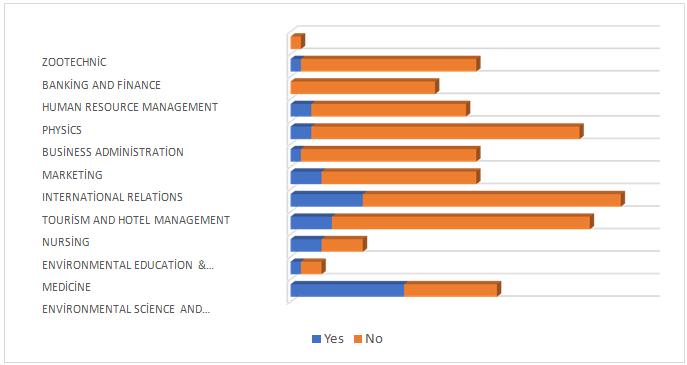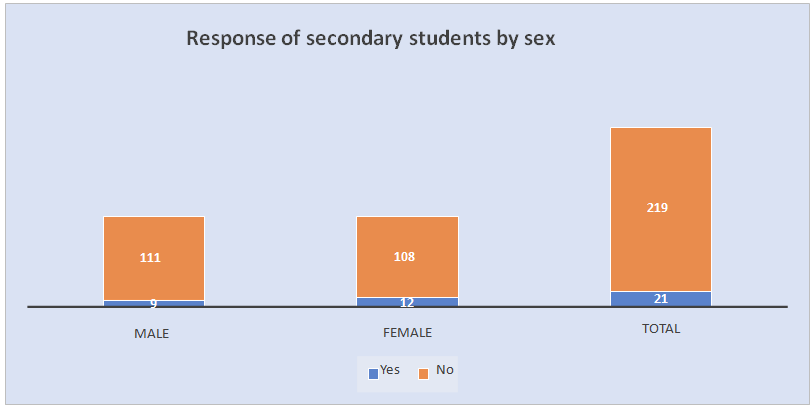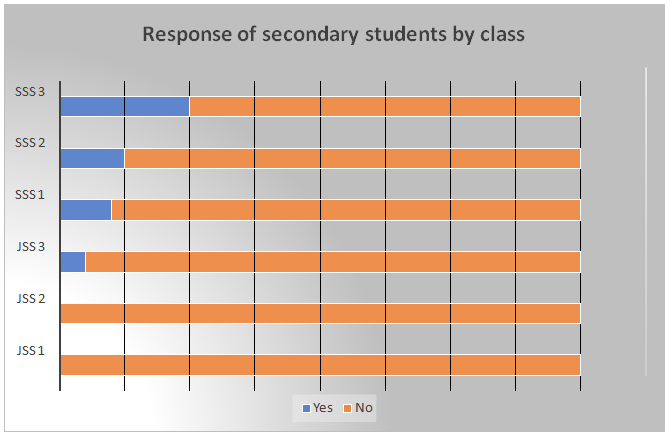Climate Change and Strategy to Prevent the Crisis of Crude Oil Transgresion to Renewable Energy in Nigeria.
- Kelechi Benedict Iroegbulem
- Engin Baysen
- 1442-1458
- Jun 19, 2023
- Environment
Climate Change and Strategy to Prevent the Crisis of Crude Oil Transgresion to Renewable Energy in Nigeria.
Kelechi Benedict Iroegbulem1* and Engin Baysen2
1Near East University, institute of graduate studies department of Environmental Education and Management Nicosia, North Cyprus, Mersin 10, Turkey.
2Assoc. Professor/ Doctor, Department of Environmental Education and Management, Near East University, North Cyprus, Mersin 10, Turkey
*Corresponding author
DOI: https://doi.org/10.47772/IJRISS.2023.70610
Received: 14 March 2023; Revised: 28 March 2023; Accepted: 01 April 2023; Published: 19 June 2023
ABSTRACT
Energy is an important accessory for the development and sustainable growth. Changes in climatic conditions is arguably the biggest challenge the environment is facing around the world today. Climate Change has resulted in a the rise in temperatures globally. Making use of quantitative cum descriptive analytical methods, this research intends to address climate change using renewable energy. This will be done in a way that will also held deal with issues that might arise from the substitution of Fossil Fuel with Renewable Energy. A sample of 240 students in secondary schools in Nigeria and 205 University students in Northern Cyprus was used used in the data gathering process for this research. Findings, revealed that 82% of Nigerian international university students are cognizant of the fundamentals of climate change and how it affects the nation’s economy. In addition it was also noted countries with crude oil as their sole source of foreign exchange would be impacted by the switch from fossil fuels to renewable energy. Therefore, the research work implies that internalized knowledge of climate change and mounting anxiety result in a personal tipping point that prompts action.
Keywords: Climate change, renewable energy, crude oil, fossil fuel, Northern Cyprus, Nigera
INTRODUCTION
One of the biggest and major problem that is facing humanity in this 21st century is the decarbonization of the global energy system. “Since the energy industry produces nearly two thirds of the world’s carbon dioxide, it is essential to combating climate change” (Quitzow, 2021). “The prosperity of the global economy is fueled by energy which is in the form of electricity and primary energy sources” (Quitzow, 2021). These resources are also crucial for the development and sustained expansion or significant changes in any given nation or region. Throughout Africa and the rest of the globe, Nigeria is well recognized for its plethora of natural resources, which include gas and oil. Due to the abundance of natural resources, the nation’s exports have risen quickly to guarantee the realization of an adequate level of foreign exchange profits, GDP, and stability in economic growth (Maalel & Mahmood, 2018; Musa et al., 2019). Due to a high level of reliance on crude oil as their primary source of energy and the backbone of Nigeria’s economy, crude oil has become a major source of energy around the world. Yet, as a nonrenewable and unsustainable energy source, it has resulted into unsustainable release of green gases in Nigeria’s energy industry (Oniemola & Sanusi, 2009). In many African nations, natural resources provide a solid economic foundation for sustained growth (Hansen, 2020). Where properly exploited and managed, “The discovery of crude oil in several African countries has led to foreign earnings, which should raise the standard of living for the inhabitants”. Significant environmental risks connected to the exploration and processing of crude oil in Africa, is primarily due to “waste discharges such as drilling fluids, air emissions, oily drill cuttings, oil spills, gas flares, well treatment fluids, and deck drainage”, among other things (Beyer et al., 2020; Song et al., 2020). Upstream and downstream operations also cause noise, atmospheric, and marine pollution, all of which have a severe influence on water and atmospheric condition. “Furthermore, the process of oil exploration introduces trace elements to surface waters from deep aquifers, and majority of the substances which include heavy metals such as cadmium, arsenic, mercury, copper, zinc, and 2 lead, are harmful to aquatic species as well as people (Ore and Adeola, 2021)”. Fossil fuels and other source of energy are abundant in Nigeria (Shaaban & Petinrin, 2014). More than 90% of the nation’s total income comes from these energy sources, which have greatly aided the country’s economic development (Kihombo, 2021). There is little to no contamination of the environment when it comes to renewable energy, because it is a clean source of energy. Renewable energy is dependent on energy sources that quickly regenerate and do not deplete. Nigeria uses biomass, wind, solar, and hydropower as renewable energy sources. Researchers, engineers, and scientists from all over the world are paying more attention to the depleting petroleum reserves including the harmful environmental effects of fossil-fuel and the use of renewable-energy in the electricity production process. Currently, the nation uses a variety of RE sources, including solar, wind, hydropower, biomass energy, and others., Biomass is the most economically feasible of these renewable energy sources for Nigeria and nearly all the world’s continents (Njoku and Ubuoh, 2020).
This research will seeks to provide the potentials for renewable energy to be exploited in Nigeria. Also, it will analyze and describe the potential for renewable energy, and its current state of development, to then focus attention on the barriers behind the investment of renewable energy in Nigeria. Moreover, the intention is to develop strategies on how to implement the use of renewable energy over the use of crude oil for economic progress.
It views selected literatures on Climate Change and renewable energy as an antidote to reversing the recent global climate change crisis and understand how knowledgeable the Nigeria International Students and Secondary school students are on climate Change and strategies to prevent the crisis of Crude oil Transgression to renewable energy in Nigeria through questionnaire.
In summary the study tried to seek knowledge to discuss the impact of climate change, how to create awareness about climate change, how knowledgeable Nigeria International Student in Northern Cyprus and Secondary School Student in Nigeria are about climate change, how effective is renewable energy in combating climate change, and what large scale models of renewable energy can countries adopt to finally stop the over dependence on fossil fuels.
Considering the aforementioned goals and gender, department, and education level as independent variables, following are several questions to be answered depending on the ideas of the participants of the current study,
- What are the knowledge levels of participants regarding climate change,
- Is they base the climate change a product of human activities or not,
- Whether climate change is stoppable or not,
- Whether we can stop the use of fossil fuel to fight climate change or not,
- Whether change from use of fossil fuel (crude oil) to renewable energy affect countries that have (crude oil) as only foreign exchange
Research Questions & Hypotheses
Impacts of climate change
How to create awareness about climate change.
How knowledgeable the people are about climate change.
How effective is renewable energy in combating climate change
What large scale models of renewable energy can countries adopt to finally stop the over dependence on fossil fuels?
METHODOLOGY
This study tries to examine the problem of climate change, effects of much dependence on energy from the fossil-fuels and renewable energy as a workable substitute. The research was carried out using a quantitative research methodology. To collect quantitative data; survey was carried out among some group of academic students. Information from certain research works, and some web materials were used as secondary form of data. All this data was analyzed, interpreted and discussed to check the levels of understanding on climate change by Nigeria Secondary students and Nigeria International University Students in Northern Cyprus.
The data was collected from students of North Cyprus University seems these are Nigerians based in
Cyprus from previous paragraphs and Secondary School students from Nigeria which makes up the primary source of data, while data was also collected from other sources. The primary data involves generating survey questions using questionnaires which was distributed among the target respondents to capture their various responses. Secondary data was obtained from other existing literatures.
The data was collected from 240 students from secondary schools in Nigeria and about 205 Nigeria University students in North Cyprus. Questionnaire were distributed for them to answer complete after ethical clearance. At the end of the survey, the responses of the students were entered and coded into the SPSS software after which analysis was carried out. The analysis involved descriptive summary which makes use of the frequencies and percentages. These were presented in charts inferential analysis was used for hypothesis testing.
RESULTS AND DISCUSSIONS
The research was carried out by administering questionnaires to 205 Nigerian University Students in Northern Cyprus with 122 of them been male and 83 of them are females distributed across faculties of different departments in the University and they were between the age range 16 – 35. Majority of the students were able to provided response to the questions asked. Also, 240 Secondary School students from Nigeria were also interviewed with forty (40) picked from each class (JSS1-JSS3 and SSS1 – SS3). They were picked to be 20 male students and 20 female students from each class.
Figure 1. Table showing Student Categories, Frequency, Percent.
| Categories | Frequency | Percent | Valid Percent | Cumulative Percent |
| Nigeria International University Students in North Cyprus | 205 | 46.1 | 46.1 | 46.1 |
| Secondary Students in Nigeria | 240 | 53.9 | 53.9 | 53.9 |
| Total | 445 | 100.0 | 100.0 | 100.0 |
Figure 2. A Chart Showing the Distribution of University Respondents According to Their Sex
Figure 3. A Chart Showing the Distribution of University Respondents According to Their Departments
Also, 240 Secondary School students from Nigeria were also interviewed with forty (40) picked from each class (JSS1-JSS3 and SSS1 – SS3). They were picked to be 20 male students and 20 female students from each class as indicated in figure 4. The students were also able to answer questions on some of the subject matter but are restricted due to limited knowledge. Further details of responses from both the university and secondary students are given later in this chapter.
Figure 4. A Chart Showing the Distribution of Secondary Students by Class and Sex
Climate Change Awareness
Generally, the result from the survey of the analysis among the secondary students shows that male students are more knowledgeable about Climate Change than the female Students, and also students in senior classes are more knowledgeable to junior classes students, furthermore science Students in higher classes are more knowledgeable than the art Students, then based on background of the students’ parents resident, occupation and education level, is obvious from the data collected , children whose parent reside in the urban area and rural area does not make any different on the knowledge about climate change and applicable to education and occupation. The results from the Nigerian International University Student in North Cyprus show that most of them are aware of the basics of climate change.
For University Students from North Cyprus, when asked if they know about climate change, out of the 205 only 168 responded ‘Yes’ and 105 (62%) represents the male students while 63 (38%) female and a total number of 37 responded ‘No’ with 17 (46%) male and 20 (54%) female. From the results it can be concluded that the male students know more about climate change than the female students as shown in figure 5 below.
Figure 5. Response of University Students to Do You Know About Climate Change/Sex
Also, figure 6 shows the response of university students according to the departments. From the analysis it can be discovered that majority of the students that said ‘Yes’ comes from the Tourism and Hotel management department (32) followed by the Nursing department (29) then the Business administration department with 28 students, the environmental science and engineering department with 20 students the least represented department as shown in the figure is Zootechnic. Generally, the results show that across all the departments, majority of the students responded ‘Yes’ which shows that they know about climate change.
Figure 6. Response of University Students to Do You Know About Climate Change/Departments
For secondary students from Nigeria, when asked if they know about climate change, out of 240 only 73 responded ‘Yes’ with 36 representing the male students while 37 female and a total number of 167 responded ‘No’ with 84 male and 83 female as seen in figure 7. From the results it can discovered that most of the secondary school students don’t know about climate change.
Figure 8 also shows the response of the secondary students by according to their classes. From the chart, a higher percentage of students from the senior secondary school responded ‘Yes’ while majority of the junior students said ‘No’. This shows that the senior students have more knowledge on climate change.
Figure 7. Response of Secondary Students to Do You Know About Climate Change/Sex
Figure 8. Response of Secondary Students to Do You Know About Climate Change/Class
Is Climate Change Caused by Human?
According to the results shown in Figure 9, most students (62%) from a university in North Cyprus believe that human activities are the leading cause of climate change. In contrast, a minority of students (38%) do not share this view. Similarly, when asked about the naturalness of climate change, Figure 12 indicates that most university students (105) from North Cyprus believe climate change is natural. In contrast, 17 students hold the opposite view.
On the other hand, the results obtained from secondary school students in Nigeria, as shown in Figure 9, indicate that only 64 students responded positively to whether human activities cause climate change. In comparison, 176 students answered in the negative. This suggests a limited understanding of the subject matter among secondary school students. When asked about the naturalness of climate change, Figure 13 shows that 77 secondary school students in Nigeria believe climate change is natural, while 163 students think it is not.
Overall, the results highlight the divergent views and limited knowledge among students from different educational levels and locations regarding the causes and naturalness of climate change.
Figure 9. Response of University/Secondary Students to is Climate Change Caused by Humans/Sex
Also, according to the various faculty in the university, figure 10 shows the response of the university students according to their departments while figure 11 shows that of the secondary students according to their classes.
Figure 10. Response of University Students to is Climate Change Caused by Humans/Departments
Figure 11. Response of Secondary Students to is Climate Change Caused by Humans/Departments
Figure 12. Response of University Students to is Climate Change Natural/Sex
Figure 13. Response of Secondary Students to is Climate Change Natural/Sex
Also, according to the various faculty an in the university, figure 14 shows the response of the university students according to their departments while figure 15 shows that of the secondary students according to their classes.
Figure 14. Response of University Students to is Climate Change Natural/Departments
Figure 15. Response of Secondary Students to is Climate Change Natural/Departments
Can Climate Change Be Stopped?
In figure 16, when can see the something is not right here responses of the secondary students and the university students to the question ‘can climate change be stopped’ in the chart out of a total of 167 students that said yes, 84 are male students while 83 are female students this shows almost equal range of knowledge between the two sex. The university students have more knowledge about the subject matter as seen in the figure.
Figure 16. Response of Secondary/University Students to ‘Can Climate Change Be Stopped’/Sex
Majority of the secondary school students said climate change cannot be stopped as seen in figure 17. Although a large proportion from the senior secondary said it can be stopped. Also, looking as figure 18 the vast majority of the students especially from the various departments said climate change can be stopped.
Figure 17. Response of Secondary Students on Can Climate Change Be Stopped/Class
Figure 18. Response of Secondary Students on Can Climate Change Be Stopped/Department
Is There Any Relationship Between Fossil Fuel and Climate Change?
In figure 19, shows the responses of the secondary students and the university students to the question ‘can climate change be stopped’ in the chart out of a total of 211 students that said yes, 104 are male students while 107 are female students this shows a greater number of the female students although the difference is minute.
Figure 19. Response of Secondary/University Students to ‘Is There Any Relationship Between Climate Change and Fossil Fuels/Sex
Majority of the secondary school students said there is no relationship between climate change and fossil fuel. Reasons for the response may be due to limited knowledge this is seen in figure 20. Also, looking at figure 21 the majority of the students especially from the various departments said there exist relationship between climate change and fossil fuels.
Figure 20. Response of Secondary to ‘Is There Any Relationship Between Climate Change and Fossil Fuels/Class
Figure 21. Response of University Students to ‘Is There Any Relationship Between Climate Change and Fossil Fuels/Departments
Can We Stop the Use of Fossil Fuel to Fight Climate Change?
In figure 22, we can see the responses of the secondary students and the university students to the question ‘can we stop use of fossil fuel to fight climate change’ in the rather use figure so and so than chart out of a total of 202 students that said yes, 104 are male students while 98 are female students this shows a greater number of the male students. The university students on the other hand depicts male students have more knowledge compared to female students with 105 male students indicating ‘Yes and 17 female students saying ‘No’.
Figure 22. Response of Secondary/University Students to ‘Can We Stop Use of Fossil Fuel to Fight Climate Change
Majority of the secondary school students stopping fossil fuel cannot fight the change in climate conditions, this is seen in figure 23. However, half of the SS3 class however said yes it can fight climate. Also, looking as figure 24 majority of the students especially from the various departments said accepted that stopping fossil fuel can fight climate change.
Figure 23. Response of Secondary Students to ‘Can We Stop Use of Fossil Fuel to Fight Climate Change/Class
Figure 24. Response of University Students to ‘Can We Stop Use of Fossil Fuel to Fight Climate Change/Departments
Is There Any Crisis Associated in Stopping Use of Fossil Fuel?
For University Students from North Cyprus, when asked any crisis is associated with the stopping of fossil fuel, out of the 205 only 58 responded ‘Yes’ and 39 (67%) represents the male students while 19 (33%) female and a total number of 147 responded ‘No’ with 83 (56%) male and 64 (44%) female. From the results it can be concluded that generally, the students may not have good knowledge as regards this even though the male students know more than the female students
Figure 25. Response of University Students to ‘Is There Any Crisis Associated with Stopping Use of Fossil Fuel/Sex
Also, figure 26 shows the response of university students according to the departments. From the analysis it can be discovered that majority of the students that said ‘Yes’ i.e crisis is associated with the stoppage of fossil fuel. Majority of the students that said yes came from the Tourism and Hotel management department (28) followed by the Nursing department (23) then the Business administration department with 24 students, the environmental science and engineering department with 15 students and so on, the least represented department as shown in the figure 26 is Zootechnic.
From the figure, generally most of the students answered ‘No’ which shows that they may not really know about the fossil fuel stoppage causing crisis or not.
Figure 26. Response of University Students to ‘Is There Any Crisis Associated with Stopping Use of Fossil Fuel/Sex
For secondary students from Nigeria, when asked if stopping use of fossil fuel is associated with crisis, out of 240 only 36 responded ‘Yes’ with 16 representing the male students while 20 female and a total number of 204 responded ‘No’ with 16 male and 104 female as seen in figure 27. From the results it can discovered that most of the secondary school students don’t know about the crisis arising at a result of stopping fossil fuel.
Figure 28 also shows the response of the secondary students by according to their classes. From the chart, a higher percentage of students from the secondary school responded ‘No’. however, looking at the figure 28 more of the senior secondary students responded ‘Yes’. This shows that even though the secondary students generally may not have knowledge about the subject matter, the Senior secondary have more knowledge compared to the junior.
Figure 27. Response of Secondary Students to ‘Is There Any Crisis Associated with Stopping Use of Fossil Fuel/Sex
Figure 28. Response of Secondary Students to ‘Is There Any Crisis Associated with Stopping Use of Fossil Fuel/Class
Will Change from Use of Fossil Fuel (Crude Oil) To Renewable Energy Affect Countries That Have (Crude Oil) As Only Foreign Exchange?
For University Students from North Cyprus, out of the 205 only 34 responded ‘Yes’ and 25 represents the male students while 9 female and a total number of 171 responded ‘No’ with 97 male and 74 female students. From the results it can be concluded that generally, the students may not have good knowledge as regards this even though the male students know more than the female students.
Figure 29. Response of University Students to Crude Oil to Renewable Energy/Sex
Also, figure 30 shows the response of university students according to the departments. From the analysis it can be discovered that majority of the students that said ‘Yes’ i.e countries that have crude oil as their source of foreign exchange will be affected. Majority of the students that said yes came from the Business administration department (26) followed closely by the Nursing department and Tourism and hotel management with 25 students from each department and so on, the least represented department as shown in the figure 30 is Zootechnic.
Figure 30. Response of University Students to Crude Oil to Renewable Energy/Departments
In the case of secondary students from Nigeria, out of 240 only 21 responded ‘Yes’ with 9 representing the male students while 12 female and a total number of 219 responded ‘No’ with 111 male and 108 female students as seen in figure 31. From the results it can discovered that most of the secondary school students don’t know much about the subject matter.
Figure 31. Response of Secondary Students to Crude Oil to Renewable Energy/Sex
Figure 32 also shows the response of the secondary students by according to their classes. From the chart, a higher percentage of students from the secondary school responded ‘No’. However, looking at the table more of the senior secondary students responded ‘Yes’. This shows that even though the secondary students generally may not have knowledge about the subject matter, the Senior secondary have more knowledge compared to the junior.
Figure 32. Response of Secondary Students to Crude Oil to Renewable Energy/Class
Following are the significant statistics results regarding gender variable for the questions,
- Male participants are significantly more confident than female about knowing the climate change.
- Significantly more male participants are of the opinion that human factor is responsible for climate change.
- Significantly more male participants think that climate change is
- No significant difference between male and female participants regarding if the
climate change can be stopped or not.
- Significantly more male participants think that there is a relation between fossil fuel and the climate
- There exists significant difference between male and female participants regarding stopping the use of fossil
- No significant difference exists between the male and female participants regarding crisis associated in stopping the use of fossil fuel.
- There is no significant relationship between male and female participants regarding changing from fossil to renewable energy will affect foreign exchange.
CONCLUSION
According to the participants, the study’s findings to demonstrate that there is knowledge on climate change. Based on the examined literatures and collected data, it was also discovered that the level of coverage of environmental impact assessment this is appearing just in this conclusion why ?as regards to variations in climate conditions & renewable energy in Nigeria was restricted. The study’s findings demonstrate that none of the EIA reports under examination took climate change adaption methods into account, nor did they consult relevant stakeholders on these topics. Regarding adaptation, for instance, none of the EISs analyzed attempted to connect an action plan to how it will aid in the management of projected rise in the sea-level or increasing rainfall. Adaptation issues, EIAs are coming in the conclusion and nothing is mentioned in the introduction. This indicates how little the subject is perceived, despite the enormous damage it poses to Nigeria, particularly the sensitive environment of the Niger Delta region. This suggests a large gap in the EIA investigations, which should have resulted in the findings being rejected. Climate change adaptation is one of the two most important criterion specified, and its absence jeopardizes the entire environmental impact assessment process in terms of climate change inclusion. Analysis of climate change incorporation on a sectoral basis shows that there is a high level of consideration in the petroleum and petrochemical relative to other sectors. This may not be unconnected with sector-specific greenhouse gas emission targets and control mechanisms, particularly as the petroleum sector represents the most important source of Nigeria’s contribution to climate change. Agricultural development, for example, is not considered as a serious threat or GHG emission source, which is thus a reflection of its low consideration of climate change issues.
REFERENCES
- Adewuyi, O. B., Kiptoo, M. K., Afolayan, A. F., Amara, T., Alawode, O. I., & Senjyu, T. (2020). Challenges and prospects of Nigeria’s sustainable energy transition with lessons from other countries’ experiences. Energy Rep. 6, 993–1009.
- Ahuja, D., & Tatsutani, M. (2009). Sustainable energy for developing countries. SAPI EN. S. Surveys and Perspectives Integrating Environment and Society, (2.1).
- Akpodiogaga-a, P., & Odjugo, O. (2010). General overview of climate change impacts in Nigeria. Journal of human ecology, 29(1), 47-55.
- Aliyu, U. O., & Elegba, S. B. (1990). Prospects for small hydropower development for rural applications in Nigeria. Nigerian Journal of Renewable Energy, 1(1), 74-86.
- Aliyu, A. S., Dada, J. O., & Adam, I. K. (2015). Current status and future prospects of renewable energy in Nigeria. Renewable and Sustainable Energy Reviews, (48), 336-346.
- Amankwah‐Amoah, J. (2015). Solar energy in Sub‐Saharan Africa: The challenges and opportunities of technological leapfrogging. Thunderbird International Business Review, 57(1), 15-31.
- Beyer, J., Goksøyr, A., Hjermann, D. Ø., & Klungsøyr, J. (2020). Environmental effects of offshore produced water discharge: A review focused on the Norwegian continental shelf. Marine Environmental Research, 162, 105155.
- Covert, T., Greenstone, M., & Knittel, C. R. (2016). Will we ever stop using fossil fuels?
- Eboh, M. (2018). Nigeria Losing 868m daily to gas flaring. Available at: https://www.vanguardngr.com/2018/03/nigeria-losing-n868m- daily-gas-flaring-nnpc/
- Hansen, S. (2020). Here’s why oil prices are plummeting again. Forbes. (Accessed on11/05/2021).
- Howarth, R. W. (2019). Ideas and perspectives: is shale gas a major driver of recent increase in global atmospheric methane? Biogeosciences, 16(15), 3033-3046.https://www.macrotrends.net/countries/NGA/nigeria/electricity- access-statistics#:~:text=
- Itodo, I. N., Bala, E. J., & Sambo, A. S. (2021). Biogas Technology in Nigeria. CRC Press.
- Jiang, Y., Feng, Q., Mo, B., & Nie, H. (2020). Visiting the effects of oil price shocks on exchange rates: Quantile-on-quantile and causality-in- quantiles approaches. The North AmericanJournal of Economics and Finance, 52, 101161.
- Journal of Economic Perspectives, 30(1), 117–138. https://doi.org/10.1257/jep.30.1.117
- Kasdagli, M. I., Katsouyanni, K., Dimakopoulou, K., & Samoli, E. (2019). Air pollution and Parkinson’s disease: a systematic review and meta- analysis up to 2018. International Journal of Hygiene and Environmental Health, 222(3), 402-409.
- Kieran, P. (2014). Review of the reform and the privatization of power sector in Nigeria: Solution for growing economies. Available at: http://www.energynet.co.uk/webfsend/427. [Accessed 14 February 2017].
- Kihombo, S., Ahmed, Z., Chen, S., Adebayo, T. S., & Kirikkaleli, D. (2021). Linking financial development, economic growth, and ecological footprint: what is the role of technological innovation? Environmental Science and Pollution Research, 28(43), 61235-61245.
- Köne, A. Ç. & Büke, T. (2019). Factor analysis of projected carbon dioxide emissions according to the IPCC based sustainable emission scenario in Turkey. Renewable Energy, 133, 914- 918.
- Latief, F. D. E., Mohammad, I. H., & Rarasati, A. D. (2017). Digital 3D microstructure analysis of concrete using X-ray micro computed tomography SkyScan 1173: a preliminary study.
- Laumanns, U., Reiche, D., & Bechberger, M. (2014). Renewable Energies in Developing Countries: Issues, Interests, and Implications. Energy & Environment, 15(4), 731–741. https://doi.org/10.1260/0958305042259774
- Odjugo, P. A. (2005). An analysis of rainfall patterns in Nigeria. Global Journal of Environmental Sciences, 4(2), 139-145.
- Odjugo, P. A. A. O. (2010, August). Adaptation to climate change in the agricultural sector in the semi-arid region of Nigeria. In 2nd International conference: Climate, Sustainability and development in Semi-arid Regions August (pp. 16-20).
- Oniemola, P.K., & Sanusi, G. (2009). The Nigerian bio-fuel policy and incentives (2007): A needto follow the Brazilian pathway. In Energy, Economy, Environment: The Global View: Proceedings of the 32nd IAEE International Conference.
- Onochie, U. P., Obanor, A., & Aliu, S. A. (2015). Electricity crisis in Nigeria: the way forward. American Journal of Renewable and Sustainable Energy, 1(4), 180–186.
- Ore, O. T., & Adeola, A. O. (2021). Toxic metals in oil sands: review of human health implications, environmental impact, and potential remediation using membrane-based approach. Energy, Ecology and Environment, 6(2), 81-91.
- Oyebode, O. J. (2022). Utilization of coal, natural gas and water for sustainable power generation in Nigeria: Challenges, prospects and way forward.
- Oyedepo, S. O. (2019). Energy use and energy saving potentials in food processing and packaging: case study of Nigerian industries. In Bottled and packaged water (pp. 423-452). Woodhead Publishing.
- Ozoegwu, C. G., Mgbemene, C. A. & Ozor, P.A. (2017). The status of solar energy integration and policy in Nigeria. Renewable and Sustainable Energy Reviews, 70, 457-471.
- Ritchie, H., & Roser, M. (2019). Access to energy. Our World in Data, 9. Saunders, M. N. K. (2015). Research methods for business students. ProQuest
- Ebook Central https://ebookcentral-proquest-com.esc- web.lib.cbs.dk:8443
- Shaaban, M. & Petinrin, J. (2014). Renewable energy potentials in Nigeria: meeting rural energy needs, Renew. Sustain. Energy Rev., 29, 72–84.
- Song, J., Rezaee, S., Guo, W., Hernandez, B., Puerto, M., Vargas, F. M., & Biswal, S. L. (2020). Evaluating physicochemical properties of crude oil as indicators of low-salinity–induced wettability alteration in carbonate minerals. Scientific Reports, 10(1), 1-16.
- Sugiono, E., & Ulfa, A. (2021). The effect of competency, emotional intelligence, education and training on employee performance mediated by organizational commitment at pt. mitra kualitas utama Jakarta. Academy of Strategic Management Journal, 20(6), 1-8.
- Udoakah N. Y. O. (2014). Sustainably meeting the energy needs of Nigeria: The renewable options. IEEE International Conference, IEEE, 326-332.


